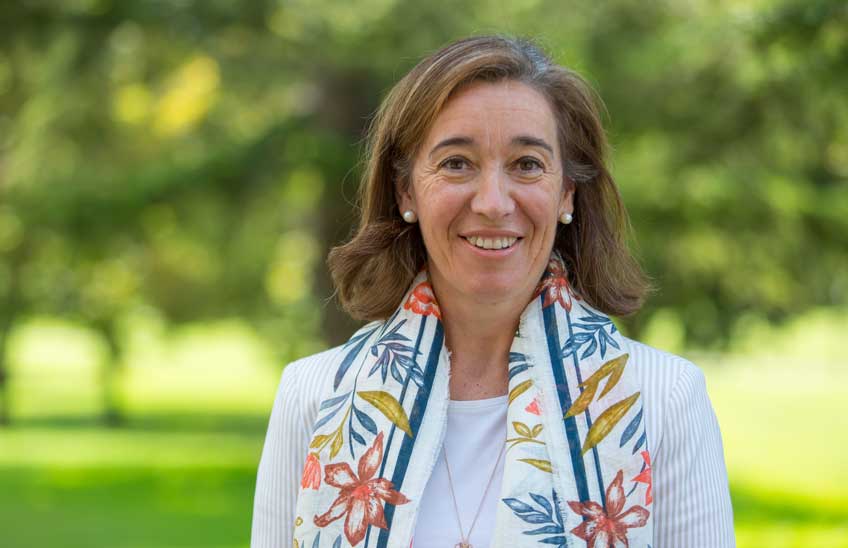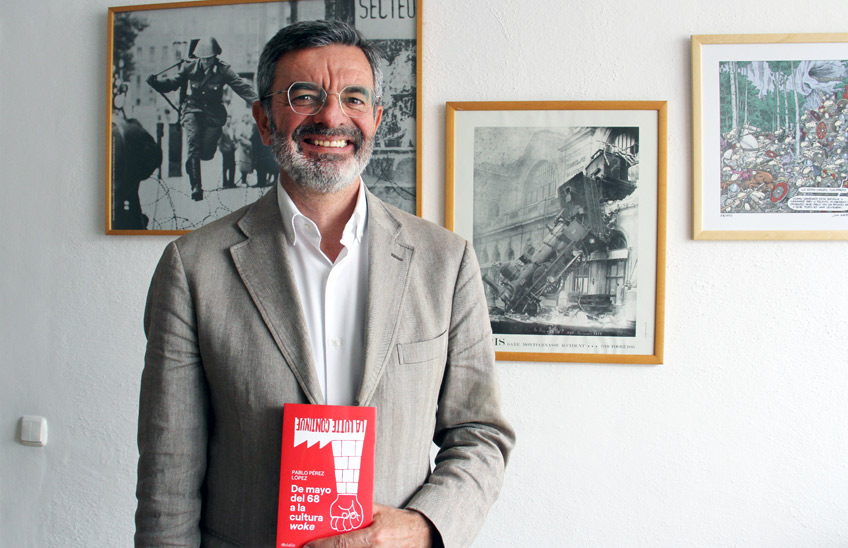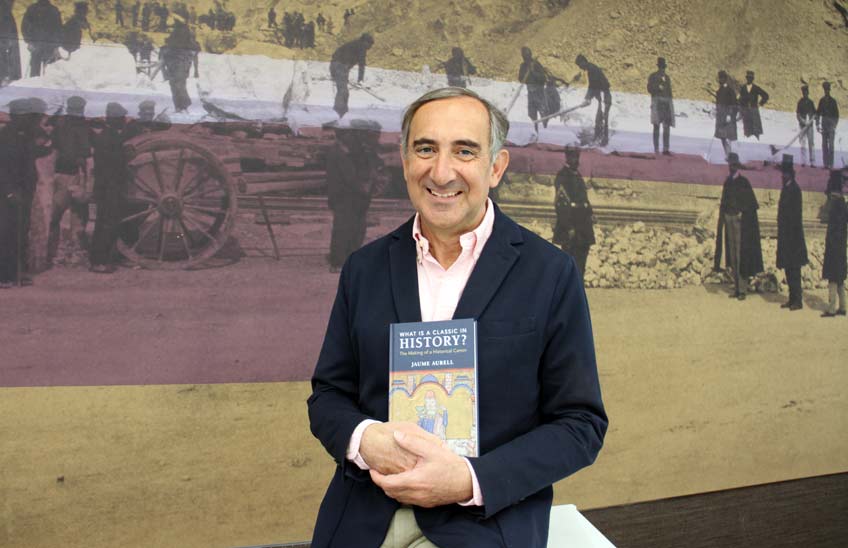"The average age is at the origin of the great values of the West, from universities to democracy."
Jaume Aurell, Full Professor of Medieval History, sheds new light on the average in his latest bookbequest de Gigantes".

07 | 05 | 2025
Jaume Aurell, Full Professor of Medieval History at the School of Philosophy and Letters of the University of Navarra and researcher of the group "Religion and Civil Society" of the Institute for Culture and Society (ICS), has published the bookbequest de Gigantes. A decalogue of medieval values for our time". The work, published by Rosameron, not only vindicates the positive heritage of the average, highlighting its cultural, spiritual and academic richness, but above all proposes a decalogue of medieval values that we would do well to apply to our times. At the same time, it demystifies some issues related to this period and dismantles misconceptions that have persisted in the popular perception of the Middle Ages. "Those who know the average discover that the foundations of our civilization were not born in the Enlightenment, but in the monasteries, universities and cathedrals," he says.
Perceived as a dark and irrational period, in Professor Aurell's opinion "the average age has a lot to show us". Thus, the work breaks with the myth and suggests a new alternative: to emphasize its values and take advantage of them to improve contemporary society, benefiting from the bequest of giants such as St. Augustine, Charlemagne, Eleanor of Aquitaine, Alfonso X Wise, Giotto, Dante, or St. Catherine of Siena, among others. As the author points out, paraphrasing one of the mottos most appreciated by medieval intellectuals, "we are dwarfs on the shoulders of giants: we can see further than them because we allow ourselves to be led by their height" or, as Eugenio d'Ors formulated it: "everything that is not tradition is plagiarism".
Throughout its pages, it rescues the fundamental contributions of this historical period, and proposes a decalogue of teachings for our time. Values such as the contemplative habit, respect for mystery, loyalty and truthfulness, the aspiration to heroism, reform over revolution, appreciation for tradition, the playful sense of existence, respect for the classics, or courtesy in attention are rediscovered as essential pillars of our present.
The author also insists that "the Middle Ages was not an era without culture or thought, but a time of great philosophical and literary creativity, with a profound historical and spiritual awareness". And he adds: "A society without a past is condemned to a fragile present and an uncertain future". In this sense, Professor Aurell criticizes the modern exclusion of a period that, far from being retrograde, can provide fundamental keys for the present: "It is an irony that a society so healthily obsessed with the rights of the other - immigrants, the disabled, minorities, the disadvantaged, the eccentric - has not been able to recognize its other self: the averageage". As he emphasizes, "bequest de Gigantes goal to alleviate the pernicious effects of this amnesia, to locate the moments of rupture with the medieval tradition and, above all, to focus on some of the values of the average that would do us so much good if we could adopt them today".
The work can be purchased at the following link.
Jaume Aurell is Full Professor of Medieval History at the University of Navarra. His research deals with topics such as Mediterranean mercantile culture, medieval coronations and autobiographies of 20th century historians. His latest works include "Elogio de la Edad average" (2021), "Genealogía de Occidente" (2017) and "La escritura de la report, de los positivismos a los postmodernismos" (2017).



